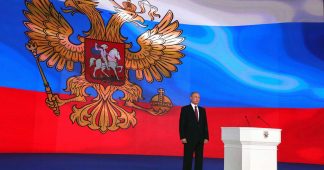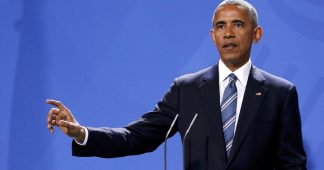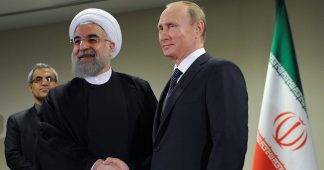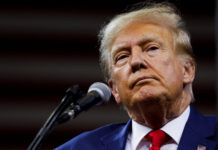American opponents of readmitting Moscow to the former G8 fail to understand the consequences
By Stephen F. Cohen
September 18, 2019
Two years ago, I asked, “Will Russia Leave the West?” The world’s largest territorial country—sprawling from its major European city St. Petersburg to its vast Far Eastern territories and long border with China—Russia cannot, of course, depart the West geographically. But it can do so politically, economically, and strategically. Indeed, where Russia belongs, where it should seek its identity, security, and future—in the East or in the West—has divided the nation’s policy-makers and intellectual elites for centuries.
In our times, as I also pointed out two years ago, a Russia departed, or driven, from the West would likely mean “a Russia—with its vast territories, immense natural resources, world-class sciences, formidable military and nuclear power, and UN Security Council veto—allied solidly with all the other emerging powers that are not part the US-NATO Western ‘world order’ and even opposed to it. And, of course, it would drive Russia increasingly afar from the West’s liberalizing influences, back toward its more authoritarian traditions.”
That’s why the controversy provoked by President Trump (and French President Emmanuel Macron) in seeking that Russia be readmitted to the G7/8, from which it was in effect expelled in 2014 for its annexation of Crimea, is so important—and so uninformed. Purportedly, the (now) G7 is the elite club of prosperous functioning democracies. In reality, Russia under President Boris Yeltsin was neither when it was admitted in 1997. The decision was political—to assure Moscow that Russia was welcome in the West and indeed part of it, potentially including its security arrangements.
Expelling Russia sent the opposite message, as did moving the metaphorical “Iron Curtain” from Berlin to Russia’s border through a myriad of other exclusions and sanctions. And as did, above all, expanding NATO to Russia’s borders, the exceedingly unwise policy begun by President Bill Clinton and continued under President Obama. The result has already been two wars, in Georgia in 2008 and the ongoing conflict in Ukraine, and a Russian-Chinese relationship so close and expansive that its current leaders refer to each other as “best friends.” (Having come to power in 2000 as a pro-Western modernizer, Putin’s own evolution in response to these developments should be clear to any fair-minded observer.)
Underpinning these Washington follies was the notion, also promoted by President Obama and apparently still widespread in the sanction-happy US Congress, that Russia could and should be “isolated” in world affairs. Suffice it to point out that today it is said that the United States is being isolated in international relations. Meanwhile, Russia’s seemingly tireless foreign minister, Sergei Lavrov, may be busier diplomatically than any of his counterparts around the world, certainly among the major powers.
Little if any of this seems to be understood by the US political-media establishment. Astonishingly, though perhaps not, US-Russian relations, still Washington’s single most important bilateral relationship, not only because of their nuclear arsenals, was not an issue in the recent Democratic presidential debates. We can therefore only guess whether or not any of the featured candidates would as president seek to reverse Russia’s drift away from the West—the one candidate who says she would do so, Tulsi Gabbard, having been excluded from the debates.
Published at https://www.thenation.com/article/will-russia-be-driven-from-the-west/











